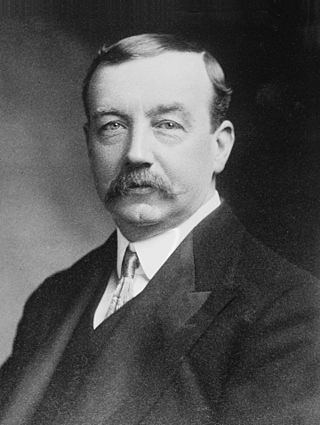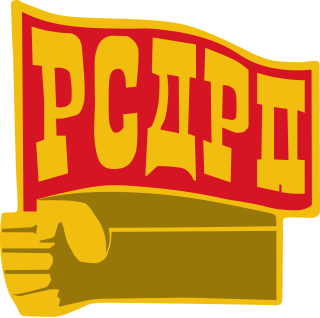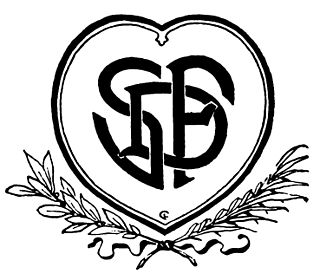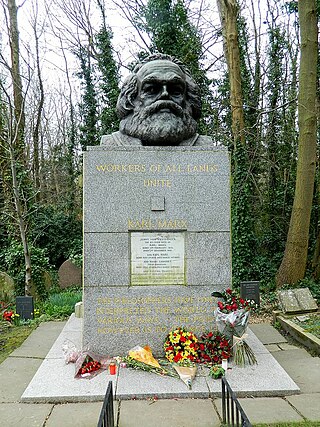Related Research Articles

James Ramsay MacDonald was a British statesman and politician who was Prime Minister of the United Kingdom, the first who belonged to the Labour Party, leading minority Labour governments for nine months in 1924 and again between 1929 and 1931. From 1931 to 1935, he headed a National Government dominated by the Conservative Party and supported by only a few Labour members. MacDonald was expelled from the Labour Party as a result.

George Lansbury was a British politician and social reformer who led the Labour Party from 1932 to 1935. Apart from a brief period of ministerial office during the Labour government of 1929–31, he spent his political life campaigning against established authority and vested interests, his main causes being the promotion of social justice, women's rights, and world disarmament.

The Independent Labour Party (ILP) was a British political party of the left, established in 1893 at a conference in Bradford, after local and national dissatisfaction with the Liberals' apparent reluctance to endorse working-class candidates. A sitting independent MP and prominent union organiser, Keir Hardie, became its first chairman.

Arthur Henderson was a British iron moulder and Labour politician. He was the first Labour cabinet minister, won the Nobel Peace Prize in 1934 and, uniquely, served three separate terms as Leader of the Labour Party in three different decades. He was popular among his colleagues, who called him "Uncle Arthur" in acknowledgement of his integrity, his devotion to the cause and his imperturbability. He was a transitional figure whose policies were, at first, close to those of the Liberal Party. The trades unions rejected his emphasis on arbitration and conciliation, and thwarted his goal of unifying the Labour Party and the trade unions.

Jenny Julia Eleanor Marx, sometimes called Eleanor Aveling and known to her family as Tussy, was the English-born youngest daughter of Karl Marx. She was herself a socialist activist who sometimes worked as a literary translator. In March 1898, after discovering that her partner Edward Aveling had secretly married the previous year, she poisoned herself at the age of 43.

The Socialist Party of Canada (SPC) was a political party that existed from 1904 to 1925, led by E. T. Kingsley. It published the newspaper, Western Clarion.

Revolutionary Socialist Party (RSP) is a communist party in India. The party was founded on 19 March 1940 by Tridib Chaudhuri and has its roots in the Bengali liberation movement Anushilan Samiti and the Hindustan Socialist Republican Army.

The Social Democratic Workers' Party was a Dutch socialist political party existing from 1894 to 1946, and a predecessor of the social democratic Labour Party.
This article gives an overview of socialism in the Netherlands, including communism and social democracy. It is limited to communist, socialist, social democratic, and democratic socialist parties with substantial support, mainly proved by having had a representation in parliament. The sign ⇒ means a reference to another party in that scheme.
Michael Maltman Barry, often known as Maltman Barry, was a Scottish political activist who described himself as a Marxist but stood in elections for the Conservative Party.
James Frederick Henderson was an English socialist writer and journalist, and a Labour Party politician.

Socialism in the United Kingdom is thought to stretch back to the 19th century from roots arising in the aftermath of the English Civil War. Notions of socialism in Great Britain have taken many different forms from the utopian philanthropism of Robert Owen through to the reformist electoral project enshrined in the birth of the Labour Party that was founded in 1900.

The Second International, also called the Socialist International, was an organisation of socialist and labour parties, formed on 14 July 1889 at two simultaneous Paris meetings in which delegations from twenty countries participated. The Second International continued the work of the dissolved First International, though excluding the powerful anarcho-syndicalist movement. While the international had initially declared its opposition to all warfare between European powers, most of the major European parties ultimately chose to support their respective states in World War I. After splitting into pro-Allied, pro-Central Powers, and antimilitarist factions, the international ceased to function. After the war, the remaining factions of the international went on to found the Labour and Socialist International, the International Working Union of Socialist Parties, and the Communist International.

The Russian Social Democratic Labour Party, also known as the Russian Social Democratic Workers' Party or the Russian Social Democratic Party, was a socialist political party founded in 1898 in Minsk.

The Social Democratic Federation (SDF) was established as Britain's first organised socialist political party by H. M. Hyndman, and had its first meeting on 7 June 1881. Those joining the SDF included William Morris, George Lansbury, James Connolly and Eleanor Marx. However, Friedrich Engels, Karl Marx's long-term collaborator, refused to support Hyndman's venture. Many of its early leading members had previously been active in the Manhood Suffrage League.

Far-left politics in the United Kingdom have existed since at least the 1840s, with the formation of various organisations following ideologies such as Marxism, revolutionary socialism, communism, anarchism and syndicalism.
The Labour Union was a small socialist political party based in London.
Henry Alfred Barker was a British socialist activist.
The Bloomsbury Socialist Society (BSS) was a socialist organisation which broke away from the Socialist League in August 1888. Its meeting place was at the Communist Club, 49, Tottenham Street, Tottenham Court Road. At the third annual conference of the Socialist League held on 20 May 1888, the Anarchist wing of the league prevailed over the Marxist wing in their rejection of parliamentarianism. The BSS was founded in August 1888 by leading Marxists such as Edward Aveling, Eleanor Marx-Aveling, Frederick Lessner and A. K. Donald. Its first Honorary Secretary was W. W. Bartlett. In 1893 they participated in the founding of the Independent Labour Party (ILP), with Aveling being elected to the first National Administrative Council. They had joined the ILP with the goal of shifting its ideology towards Marxism, but were unsuccessful, as the party remained under the influence of Keir Hardie's Christian socialism. By 1897, Marx and Aveling left the ILP to rejoin the Social Democratic Federation, while Donald retired from political activity entirely.
References
- 1 2 "William Morris's SOCIALIST DIARY - Biographies". www.marxists.org. Marxists Internet Archive. Retrieved 20 June 2021.
- ↑ "Bloomsbury Socialist Society formed". editions.covecollective.org. COVE. 22 December 2017. Retrieved 20 June 2021.
- ↑ Barbara Nield and John Saville, "Barker, Henry Alfred", Dictionary of Labour Biography, vol.VI, pp.19-21
- ↑ Craig, FWS, ed. (1974). British Parliamentary Election Results: 1885-1918. London: Macmillan Press. ISBN 9781349022984.
- ↑ "The Bradford Labour Conference". The Times. 16 January 1893.